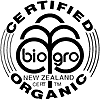Bonn, Germany, June 9th 2006
Africa Fertilizer Summit Poses Deep Concern to the International Federation of Organic Agriculture Movements (IFOAM)
Bonn, Germany, June 8th 2006 — The International Federation of Organic Agriculture Movements (IFOAM) questions the purpose and goal of the Africa Fertilizer
Summit and expresses its concern. The Summit takes place from June 9th – 13th in Abuja, Nigeria.
The New Partnership for Africa’s Development (NEPAD) organized the event with the goal of rapidly increasing chemical and synthetic fertilizer use in Africa and creating an action plan for doing
so.
IFOAM by no means underestimates the current problems in agriculture on the African Continent. However, the problems cannot be solved with the same kind of thinking that created them.
?
Over-exploitation of land and the introduction of chemical fertilizers and pesticides have provoked the institutionalization of a production system that increasingly attempts to exist independently
of naturally regulated processes and local resources, and that is heavily dependent on nonrenewable resources. As natural cycles are broken, this leads to an increase in the severity of pest and
disease outbreaks and hinders effective nutrient management in the soil. To solve the problems this system creates, even more pesticides and chemical fertilizers have to be used, establishing a
vicious cycle.
Instead of relying upon external inputs such as fertilizers and pesticides, Organic Agriculture puts farmers at the center of the farming strategy, restoring the decision-making role to rural
communities, guaranteeing the local control of resources and encouraging active participation in a value added food chain. Mineral fertilizers simply cannot be sustainable, as they are made from
oil, a limited and increasingly costly resource.
IFOAM President Gerald A. Herrmann stated “Indeed, low soil fertility is a cause of Africa’s food insecurity; however, it is certainly not the only cause. Social and economic determinants are at
least as important, and will not be changed by using more fertilizer and putting farmers in more debt! The preoccupation with productivity per hectare ignores the increasing evidence that it is not
supply factors, such as productivity per hectare, but demand factors, such as market opportunities, that determine agricultural development outcomes in Africa. Organic Agriculture offers local
market opportunities as well as high quality export goods.”
Mwatima Abdulla Juma, IFOAM World Board member from Tanzania, advises “The causes of starvation are plenty, but only seldom are they related to the rate of agricultural productivity. Rather,
developing countries are highly in debt and must therefore export food, feed and other agricultural products (so called “cash crops”) to the wealthy countries of the northern hemisphere in order to
generate income. Governments buying fertilizers simply act in the same way and add to their indebtedness even further.”
IFOAM extends an invitation to those participating in the Summit, like Jacques Diouf, secretary General of the United Nations Food and Agriculture Organization (FAO) and Jimmy Carter, as well as to
journalists, to broaden their view and have a look at an organic farm in Senegal on June 28th. Several examples from the continent - from Egypt, Senegal, Tanzania and Uganda - will highlight the
full potential of Organic Agriculture’s contribution to food security and rural development.
During the first day of the Africa Fertilizer Summit - June 9th - local movements around the continent will organize press events to share their positive experiences with Organic Agriculture and to
express their worries on the Summit.
For background information see www.ifoam.org
IFOAM is the international umbrella organization of organic agriculture movements worldwide.
IFOAM’s mission is leading uniting and assisting the organic movement in its full diversity.
Our goal is the worldwide adoption of ecologically, socially and economically sound systems taht are based on the Principles of Organic Agriculture.
IFOAM Press Release, Responsible: Angela B. Caudle, Contact: Neil Sorensen
Head Office Contact
Charles-de-Gaulle-Str. 5
53113 Bonn, Germany
Tel: +49-228-92650-10
Fax: +49-228-92650-99
Email: headoffice@ifoam.org
http://www.ifoam.org
















